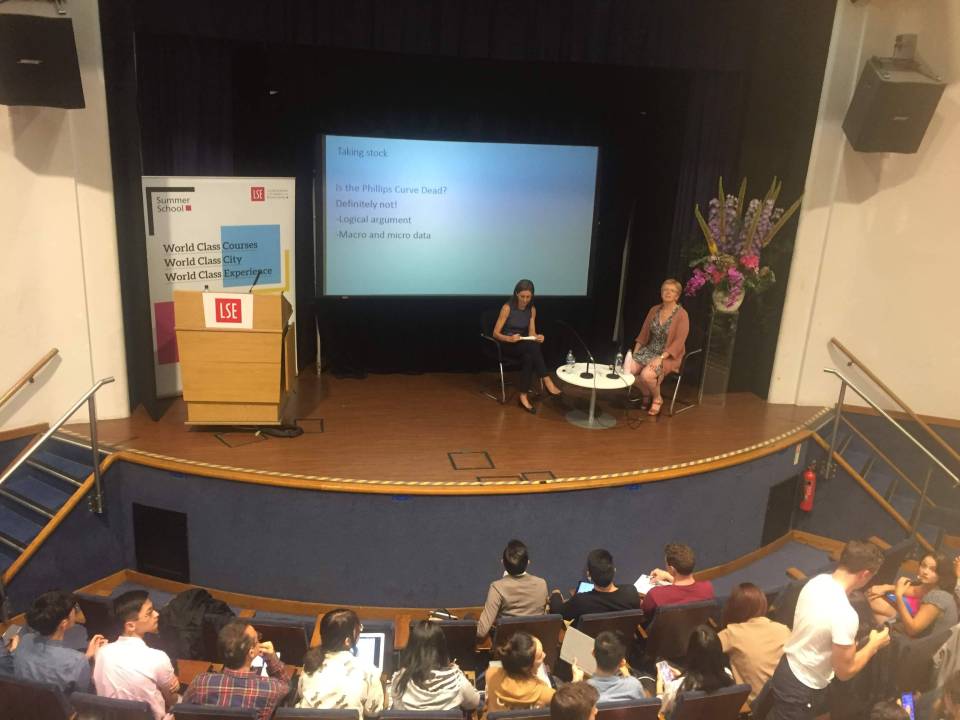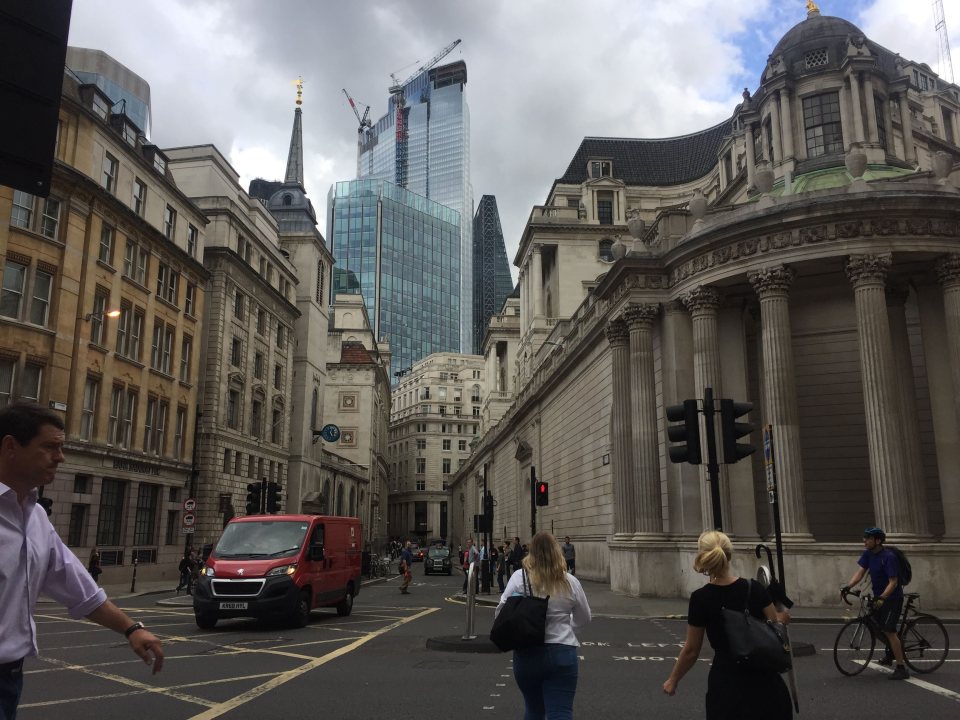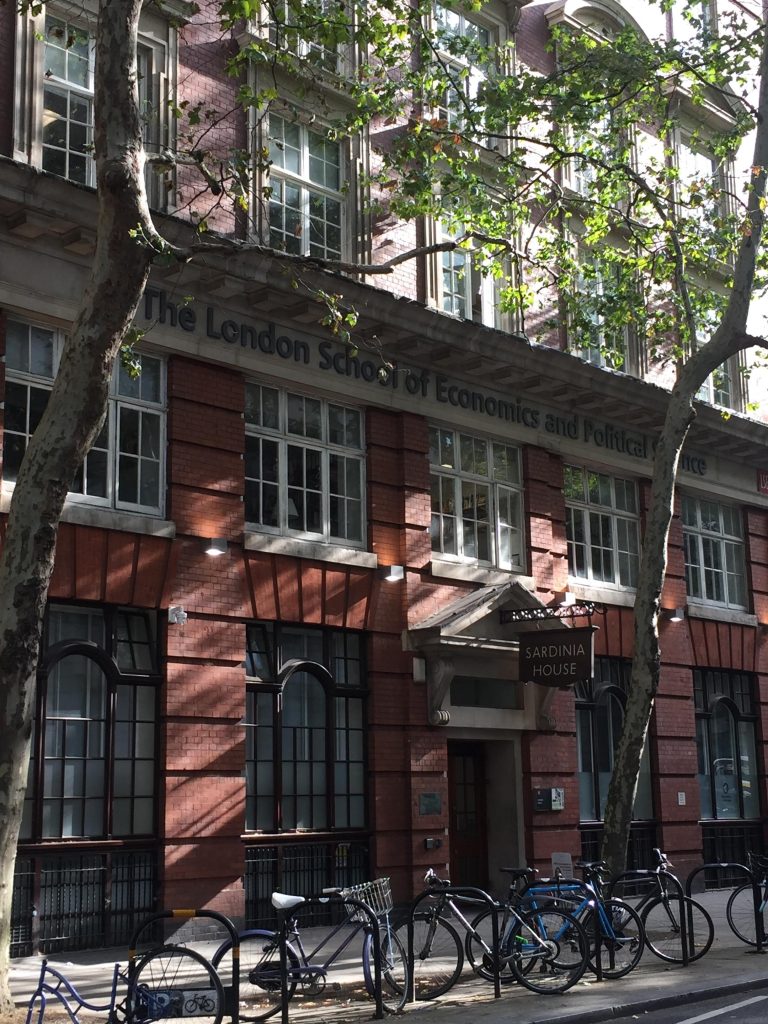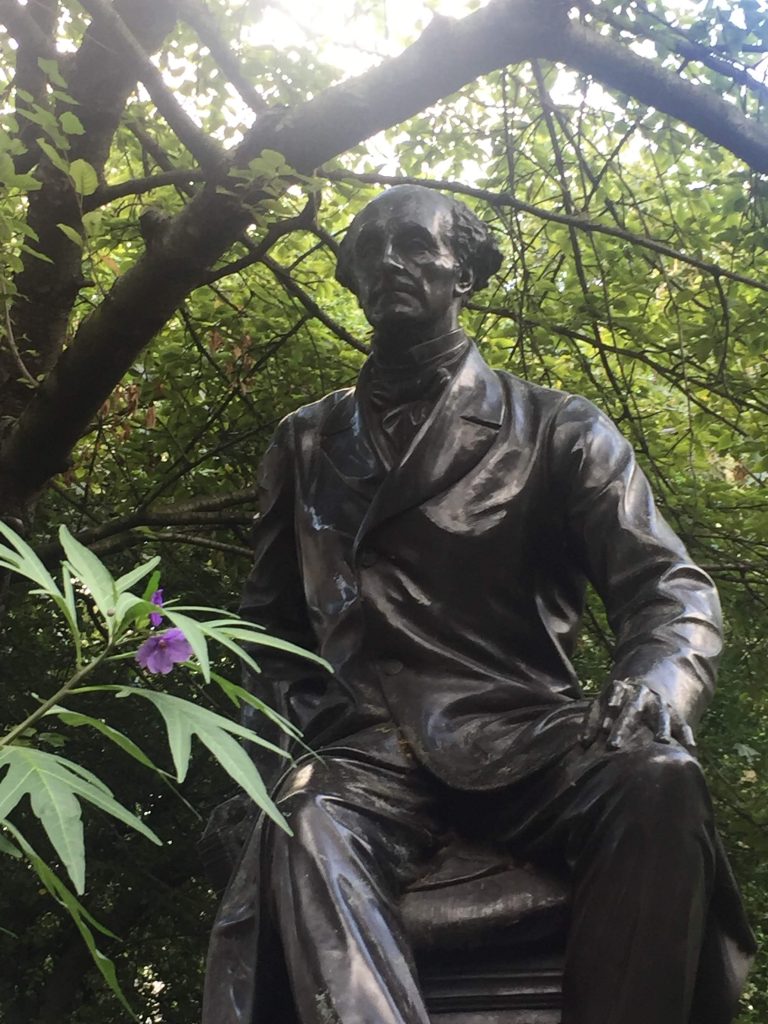
My time at the LSE was short but rich with reflections on my own discipline.
The main thing that I learnt is, you won’t be surprised, that economics is great.
Economics is not just models! The public lectures, class lectures, works of local authors and from the school all showed how economics is a field with wonderful versatility and depth. I loved learning about economic philosophies, political economy, and reading LSE authors’ works on freedom. There is also applied economics in other classes, like how fair valuation is used in hedge fund managers’ pay and from there analysing their incentives. At a lecture by Professor Silvana Tenreyro, I learnt for the first time how solving the welfare loss minimisation problem subject to the Philips curve can lead to the target rate used in monetary policy. The lecture considered the criticism towards the Philips Curve and defended it with findings from a new study.
 After Professor Silvana Tenreyro’s lecture
Before this, I was thinking to “diversify risks” by exploring other study fields. I discovered that a number of things
(not much) come more natural to me than does economics, which shook my faith somewhat. I also thought of going into a
field like technology just to show that economics students can do it. In addition, since there is hardly a prerequisite
for postgraduate studies in economics or to do economics at all, the value of credentials in the discipline is not
obvious. But if I had any doubts about getting a masters or further in economics, this trip eradicated it. A bit more
understanding of the field somehow made me want it a lot more.
After Professor Silvana Tenreyro’s lecture
Before this, I was thinking to “diversify risks” by exploring other study fields. I discovered that a number of things
(not much) come more natural to me than does economics, which shook my faith somewhat. I also thought of going into a
field like technology just to show that economics students can do it. In addition, since there is hardly a prerequisite
for postgraduate studies in economics or to do economics at all, the value of credentials in the discipline is not
obvious. But if I had any doubts about getting a masters or further in economics, this trip eradicated it. A bit more
understanding of the field somehow made me want it a lot more.
Secondly, I also learnt that economics is not special. Despite the tendency for economists to act special, economics is just a field based on other disciplines’ previous advances, and needs to cooperate with and learn further from other disciplines. If calculus had not been invented, the words of economics philosophers cannot be expressed in mathematics; if Lagrangian methods were not invented, we might not know how to maximize a thing. If the Age of Enlightenment did not happen….I guess people would never have thought systematically about why markets work, thus foundations of economics would never have been laid.
 Parts of Wisard, a pattern recognition machine. One of world’s first artificial neural network.
Parts of Wisard, a pattern recognition machine. One of world’s first artificial neural network.
I was and am guilty of selective attention, looking only at good things about my discipline. But local authors have inspired me to also look at the weak and unreasonable side of economics. From our ridiculous assumptions of markets and behaviours, to a deeply ingrained equilibrium thinking, to frequently missed economic forecasts, there are so many things economics can learn from the sciences and the arts to enhance its own theories. Learning economics in isolation does not embellish, but weakens it.
But a large part of my inpirations came from the LSE’s location in London, where multiple scholars important for economics roamed the streets and wrote their critical works. Right beside the economics building is the Hunterian Musuem, where the left brain hemisphere of Charles Babbage is preserved. Babbage (1791-1871) was known widely as the first creator of the mechanical computer, but he is also crucial for the new statistical movement and the first industrial operations treatise on the economy of technology. I pass by the Lyceum Theatre daily, where John Locke lived while he was an advisor. I stayed far from the school but very close to the U.S. embassy, which is built on the site of David Ricardo’s late home. Further to the west at Hyde Park there’s the speaker’s corner, where speakers like Adam Smith and Karl Marx tested and spread their ideologies to some willing and not-so-willing listening ears. The city itself bustles with economic activities, and smells of financial markets. It is impossible not to breath and think economics in London.
 Bank of England Building
Bank of England Building
 A rainy afternoon in London
A rainy afternoon in London
 LSE Sardinia House
LSE Sardinia House
 J. S. Mill sitting near the school. Still my favourite author.
J. S. Mill sitting near the school. Still my favourite author.
My amateur pen-keyboard-manship does not permit a full expression of what I learnt this trip. Let’s just sum up the positives and the negatives in a utilitarian welfare function like a true market economist: with notably rare exceptions, I conclude that economics is great.
Written by Natasha. Last edited:2019-09-01 15:41:25
